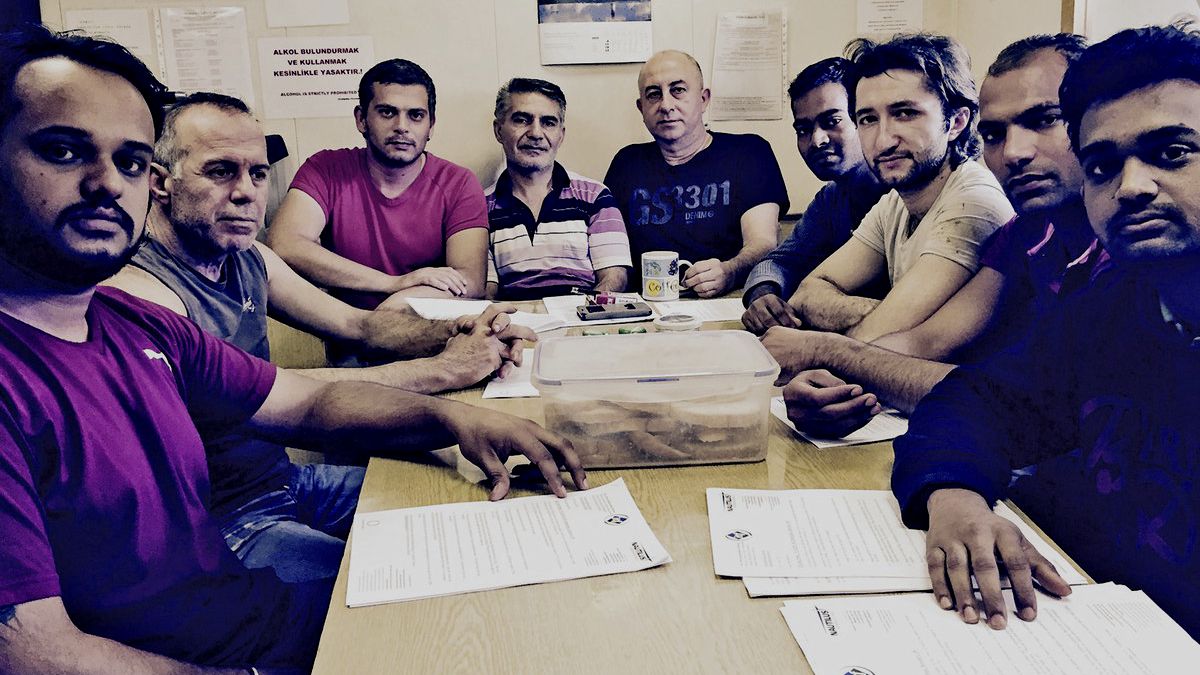
ITF inspector Darren Proctor recounted the case of ”five Turkish crew, two Indians and two Georgians. None of them had been paid for three months, but the Indian crew had not been paid since joining in September and October 2016, and had had to pay to even get the jobs.” Photo courtesy of ITF.
Excerpts from Maritime Executive:
The International Transport Workers’ Federation (ITF) has reported three ship abandonment cases in UK waters that allegedly showed a disregard for crew welfare regulations.
“The regulation exists to prevent this abuse from happening, but some people seem to think it doesn’t apply to them,” commented ITF seafarers’ section chair Dave Heindel. “Action by the flag state has yet to be seen. It’s also disappointing to see the reluctance of the P&I club to step up and pay out under the requirements that came into force in January this year under the amended Maritime Labour Convention, 2006.”
Heindel says that ITF will be reporting on these provisions to the ILO (International Labour Organization) and IMO. He alleges a “tendency to take the word of the owners at face value and ignore both the evidence onboard and the fact that this insurance was specifically designed to allow direct access to seafarers and their representatives.”
ITF inspector Darren Proctor recounted the case of the Panama-flagged Tahsin. “The vessel entered Sharpness, Gloucestershire on 31 May and was detained by the MCA after a complaint was received regarding outstanding wages and drinking water,” he said. “The crew consisted of five Turkish crew, two Indians and two Georgians. None of them had been paid for three months, but the Indian crew had not been paid since joining in September and October 2016, and had had to pay to even get the jobs. One of the contracts for an AB was for $250 total per month.
Proctor said that after ITF intervention, seven of the nine crew were repatriated and paid in full, including payment at the ILO minimum wage for the one illegally contracted for just 250 dollars a month. Inspectors found poor conditions on board, including out of date food, broken galley equipment and shortages of fresh water.
